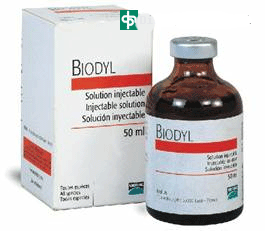
Polo captain: Vitamin supplement killed 21 ponies
The 21 polo ponies that died in Wellington Sunday were all injected before the game with a vitamin supplement called Biodyl — and team members believe a tainted dose caused their deaths, the team's captain said.
Juan Martin Nero, captain of the Lechuza Caracas polo team, told the La Nacion newspaper in Buenos Aires that all of the horses had received Biodyl injections before the game.
''We don't have any doubts about the origin of the problem,'' Nero said. “There were five horses that weren't given the vitamin and they are the only ones that are fine.''
Biodyl is a French-made supplement that contains Vitamin B, selenium and chromium, La Nacion reported.
Nero said that Biodyl is what the horses are always given.''
''For us, the suspicions are that there was something bad in the laboratory,'' Nero said. “They're common vitamins that aren't given to improve performance but rather to help them recover from exhaustion.''
Dr. Scott Swerdlin, a veterinarian at the Palm Beach Equine Club who helped treat the animals as they were dying, told the Post that Biodyl is not approved for use or sale in the United States.
But a licensed veterinarian could obtain Biodyl by submitting a prescription to a pharmacy containing the recipe for the supplement, he said.
If Biodyl shows up on the tests, now being done in Kissimmee and Gainesville, an independent lab should determine if the Biodyl mix was correct, said Swerdlin.
''Biodyl is routinely used in Europe as a vitamin supplement,'' Swerdlin said.
“My practice does not use it.''
''It's dangerous,'' Kentucky-based veterinarian Fernando Garcia told La Nacion. 'Ordering it from France isn't an easy task because you have to specify what its use will be and in what animal. In the case of the polo ponies' deaths, I don't think it was Biodyl but it could have been an imitation.''
Well-known Wellington polo patron Neil Hirsch, who co-owns the Bridgehampton Polo Club on Long Island, said vitamins are commonly used but rarely administered on a game day.
''Everybody gives their polo horses vitamins,'' Hirsch said. “But they're given on a Monday or Tuesday when no one's playing. You just don't give them the day of a match.''
Dr. Christie Ward, a veterinarian at the University of Minnesota, said that supplements are generally unlikely to harm horses but that some contain substances that could prove harmful in large quantities.
Selenium, a substance found in Biodyl, ''can be toxic when administered at too high a level,'' she said.
But she added that in general, there does not seem to be any high incidence of adverse reactions.''
As the investigation into the horses' deaths presses on, a swirl of speculation is surrounding the renowned polo team's Argentine veterinarian.
Felix Crespo, a former competitive polo player, was the Lechuza Caracas team's top man in charge of the horses' health, and he would have been the one to oversee their diet and any supplements or injections they may have received, people familiar with the team say.
